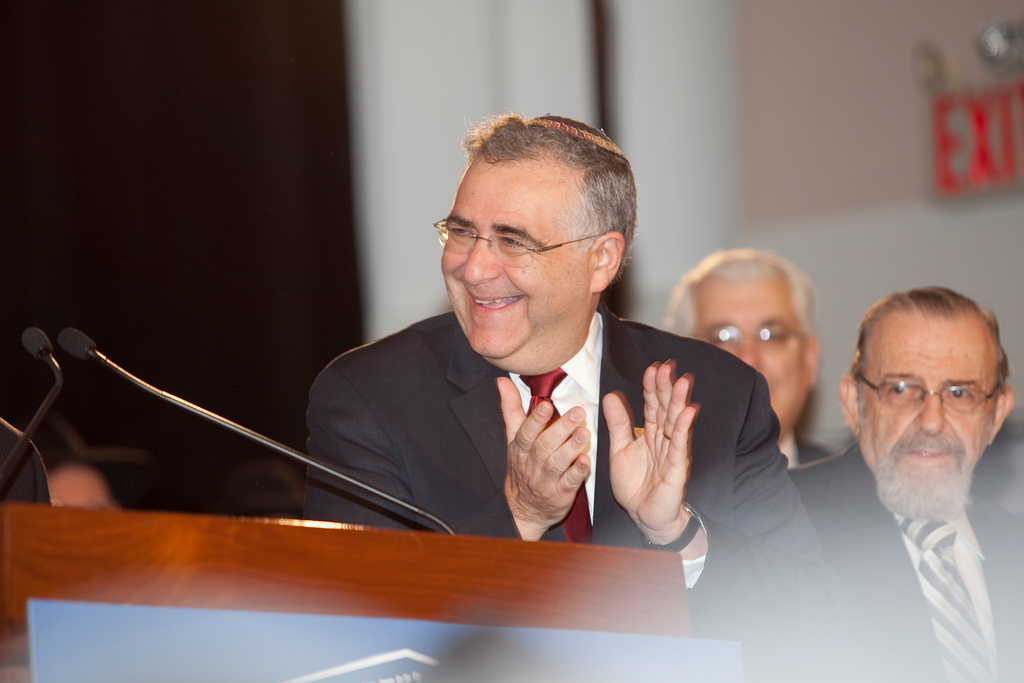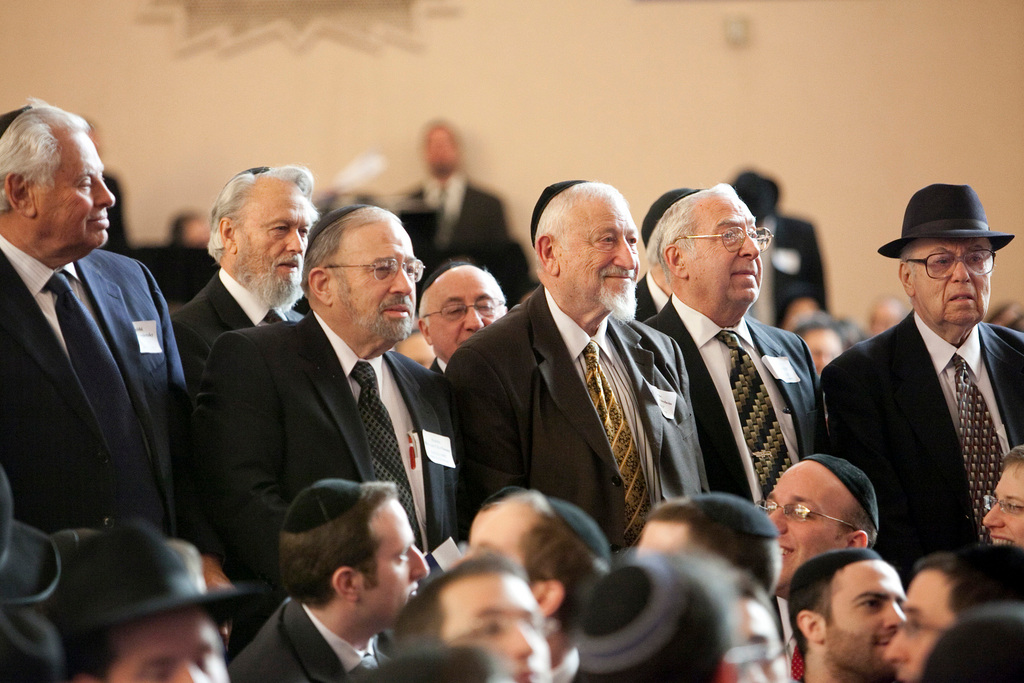Yeshiva University celebrates Chag HaSemicha
By Michael Orbach
Issue of March 12, 2010/ 26 Adar 5770Here they come, world —190 new rabbis ordained by Yeshiva University — it’s largest group of rabbinical graduates ever. The quadrennial Chag HaSemicha was held on Sunday, an event that mixed the institution’s past and future.
Coming from 51 cities on five continents, the musmakhim, newly ordained rabbis, run a gamut from students in their early twenties to established professionals in their forties, including a dozen physicians and 15 lawyers. The event also honored the semicha classes of ‘57, ‘58, and ‘59 as well as Yeshiva’s former president, Rabbi Norman Lamm, who sat on stage between Richard Joel, his successor, and Rabbi Yona Reiss, Dean of the Rabbi Isaac Elchanan Theological Seminary (RIETS).
The newly minted rabbonim shouldn’t waste time on titles, said Rabbi Reiss, be it rabbi, rav or HaRav.
“Just maintain a good name,” he urged.
Humility and confidence were among the characteristics the new rabbis were advised to maintain.
“The role of humans is not to see G-d, but to see as G-d sees and do as G-d does,” advised Rabbi Marc Penner. He is director of professional rabbinic education for RIETS and rav of the Young Israel of Holliswood.
Rabbi Michael Nadata, raised in Lawrence, is one of the newly minted clergymen. A graduate of Queens College, he earned a degree in mental health counseling and is a former outreach coordinator at Congregation Shomrei Torah in Fairlawn, N.J., where he lives with his wife, Lauren, and their two children. Aside from his rabbinical duties, he plays piano and sings on the side.
Nadata was in Pittsburgh last Shabbos performing at an NCSY Shabbaton. He drove back with friends after midnight and made it to his apartment with just enough time to shower before the trip to Washington Heights where he met up with his family before the ceremony began. Later in the week he would fly to Canada to interview for a position as an assistant rabbi.
“It’s a wonderful feeling. We’re very proud of him,” said Pauline Ratzker of Merrick, Nadata’s mother-in-law. Her grandfather was a rabbi in Poland. “It skipped two generations,” she explained.
“My son is a part of this great institution,” said his proud father, Brian Nadata, praising YU. His grandfather, Rabbi
Eliezer Horowitz, a self-described “very active above 80-year-old,” once received the same ordination as his grandson. It was coming “full circle,” he said, to watch his grandson receive smicha 59 years later.
Horowitz recalled his own ordination on the Friday before his wedding. Fearing that he wouldn’t pass the exam, the couple chose to not write the title “Rabbi” on the invitation. A friend of his took the gamble, he said, but never did manage to get smicha.
For Leah Rocklin of Cedarhurst, whose son, Mitchell, is the rabbi of Congregation Ahavath Achim in Connecticut, his ordination was the fulfillment of her dream.
“When I was pregnant I said he should be a talmid chochum (Torah scholar),” she said, as she lost sight of her son in the crowd that danced down Amsterdam Avenue to Wilf Hall.
Rabbi Joseph Stern, an alumnus of ‘59 who taught medical ethics and Jewish law at Yeshiva, called the experience “moving.”
“I came to celebrate. It’s an amazing memory. I learned a lot and tried to apply it,” he said.
Rabbi Bernard Rothman, also of the class of ‘59 and rabbi emeritus of Congregation Sons of Israel in Cherry Hill, N.J., said the smicha program has changed since his own day, and young rabbis are now better equipped for the pulpit.
A rabbinic education is “much broader now,” he maintained, “We found ourselves in the school of hit and miss. Most of us were able to overcome the [gaps] in our education. It always took people with Ahavat Yisroel (Love of Israel) to give of themselves. Usually we were successful.”
“I’m sure they’ll fill the gap that those of us who have retired have left. We need young, dramatic people,” he said.
The generation that will follow the new rabbis was less consumed with deep thoughts at a momentous occasion; the Nadata’s two children, Dinah, 3, and Akiva, 1, yawned. And ‘rabbi’ or no ‘rabbi,’ Dina said, she would still call her father ‘Abba’.

 56.0°,
Overcast
56.0°,
Overcast 







